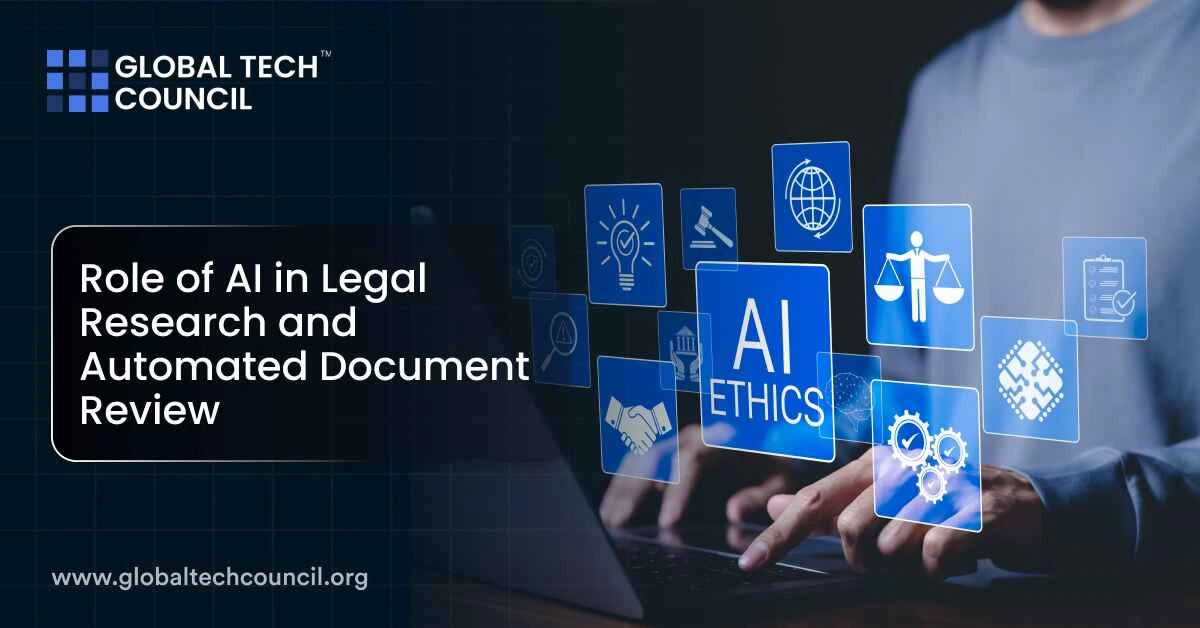Artificial intelligence (AI) is making a big difference in the legal industry, especially in research and document review. By automating routine tasks, AI lets lawyers dedicate more time to deeper legal analysis and client interactions. This shift helps improve both efficiency and accuracy in legal processes.
New AI Tools Improving Legal Work
The emergence of AI tools is introducing fresh ways to handle legal research and document review.
Trellis AI
In November 2024, Trellis introduced Trellis AI, a set of tools for litigation support. It includes motion drafting and case evaluation features, marking a leap forward for the company, which specializes in state court analytics.
Ironclad’s Jurist
Ironclad rolled out Jurist, a virtual legal assistant built to aid in creating contracts and understanding legal details. This conversational tool simplifies the often-complex contract management process.
Deloitte’s NavigAite
Deloitte launched NavigAite, an AI-driven solution integrated with RelativityOne and Relativity Server. It supports tasks such as summarizing documents, identifying personal data, and reviewing contracts.
Lexis+®
LexisNexis expanded its offerings in 2024 with Lexis+ AI. Using machine learning, this tool quickly scans large legal databases for case laws, statutes, and commentary. Its natural language processing (NLP) capabilities enable users to search using conversational queries, saving time and effort while delivering precise results.
Bloomberg Law
Bloomberg Law upgraded its research platform by adding tools that summarize court opinions and emphasize key takeaways. These features make the platform more user-friendly, helping both new and experienced lawyers find actionable insights with ease.
Pursuing the CAIE Certified Artificial Intelligence (AI) Expert® certification can help you understand AI’s role in simplifying legal research.
Transforming Document Review with AI
AI-powered tools are changing how legal teams handle contracts, litigation documents, and compliance materials. By automating these tasks, AI reduces mistakes and speeds up processes.
ContractPodAi
ContractPodAi is a leader in AI contract management, automating the review of clauses, terms, and obligations. Updates in 2024 made the platform scalable, making it ideal for routine contracts and complex negotiations. This tool is especially useful during mergers and acquisitions, helping teams streamline due diligence and ensure compliance.
Relativity AI
Relativity AI, integrated with Deloitte’s NavigAite, has become an asset in litigation. It helps with eDiscovery by pinpointing sensitive information and sorting out irrelevant documents. For instance, in corporate litigation, firms use this tool to scan millions of files efficiently, uncovering critical evidence quickly.
With a Certified Prompt Engineer™ credential, you can master the art of guiding AI for accurate legal insights.
Key Benefits of AI in Legal Tasks
Saving Time
AI tools drastically reduce the time spent on research and document review. Tasks like finding case laws, which previously took weeks, can now be completed in minutes with tools like Lexis+ AI or Bloomberg Law.
Cutting Costs
By automating repetitive work, AI lowers operational expenses for law firms. Tools like Relativity AI reduce the need for large teams to handle manual tasks, saving valuable resources.
Improving Precision
AI minimizes errors, especially in repetitive tasks like proofreading or extracting data. For example, Ironclad’s Jurist cross-checks contracts against templates and standards, ensuring accuracy in drafting.
Ethical Issues and Challenges
While AI has reshaped legal workflows, it also presents challenges, especially around ethics. Concerns about data security, bias, and transparency remain top of mind.
Tackling Bias
AI systems rely on the data they’re trained with, so any bias in that data can influence results. To combat this, providers like LexisNexis and Deloitte rigorously test their systems to ensure fairness.
Protecting Privacy
Legal data is often highly sensitive, requiring strong security measures. Platforms like Relativity AI prioritize encryption and adhere to strict privacy regulations to protect client information.
The Certified Artificial Intelligence (AI) Developer® credential is invaluable for building AI tools that streamline legal research.
Real-World Impacts on Legal Practice
Helping Smaller Firms Compete
AI tools are leveling the playing field by giving smaller firms access to advanced resources. For instance, Trellis AI offers affordable litigation tools, making it easier for solo lawyers and small teams to compete with larger firms.
Boosting Corporate Legal Departments
Corporate legal teams are increasingly using AI for managing contracts and ensuring compliance. For example, Ironclad’s platform has helped large corporations streamline vendor agreements, speeding up the negotiation process.
What’s Next for AI in Legal Work?
The future looks bright for AI in the legal field, with advancements in language processing, predictive analytics, and data handling. Developments like AI-generated legal documents and real-time updates on case law are expected to further transform the industry. However, legal professionals must stay cautious about ethical concerns as these tools become more widespread.
Final Thoughts
AI is transforming how legal research and document review are done, improving speed, precision, and accessibility. Although concerns such as bias and privacy issues remain, ongoing innovations suggest exciting opportunities for AI in law. By staying informed and using these technologies thoughtfully, legal professionals can thrive in an ever-changing industry.
